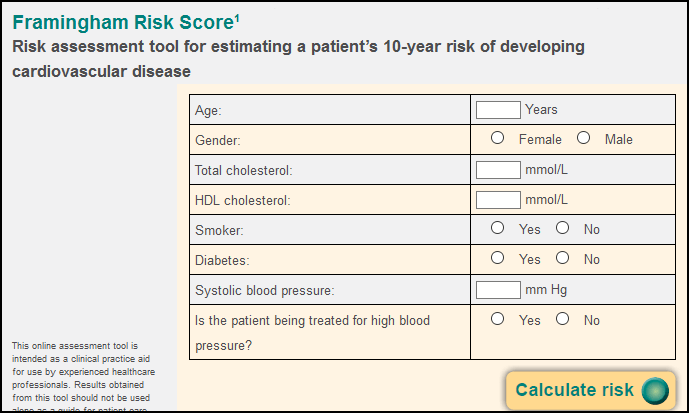Medical line
Diving and Cardiovascular Risk
How you can assess your Cardiovascular Risk for Diving with the Framingham Risk score.
Approximately 32% of diving fatalities have been identified as cardiac event or cardiac arrest.
According to M.D., Ph.D. Alfred A. Bove, Emeritus Professor of Medicine at the Cardiology Section of Temple University School of Medicine in Philadelphia, USA, the risk for heart attack is affected by a number of factors that may go undetected for many years until the attack occurs. These factors may not cause symptoms for a long time but are cumulative and will finally lead to a heart attack that may occur while diving or on land.
Factors that increase risk for heart attack include:
1. Elevated blood pressure
2. Elevated cholesterol
3. Cigarette smoking
4. Diabetes
5. Age
6. Gender (men have a higher risk than women)
The Framingham risk score (calculators can be found on the Internet – CVD) can be used to estimate your personal heart attack risk. To determine your risk score you need your blood pressure, cholesterol level, including total, LDL and HDL cholesterol, smoking status, diabetes status, age and gender (Fig. 1 & Fig. 2).
Fig.1 (values in mmol/L)

Fig.2 (values in mg/dL)

The calculation provides the 10-year risk for heart attack (in percent):
Is your risk score less than 10 percent, you are considered a low risk, is it 10 percent or greater and less than 20 percent, you are considered intermediate risk. With more than 20 percent you are at high risk.
If your Framingham risk score is more than 10 percent, you should be evaluated medically to be sure you are safe for diving.
Other factors that are not included in the Framingham risk score but can increase your heart attack risk are:
- history of a heart attack before age 50 in a close family member,
- poor physical conditioning,
- lack of exercise, and
- obesity
For safe diving, you should avoid obesity (overweight), exercise enough to maintain good physical condition, keep your blood pressure and cholesterol normal, and get a check for diabetes.
Your personal lifestyle can make the difference. Start early to lower your heart attack risk!

